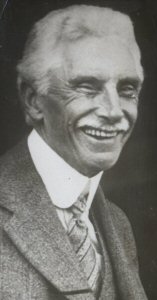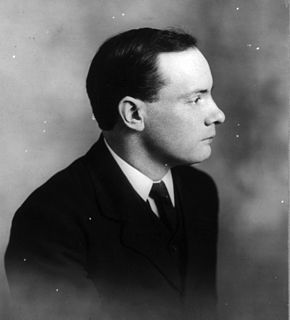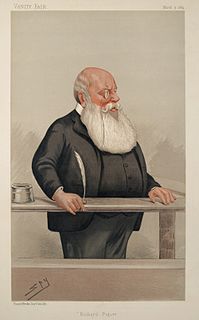 W
WJohn Joseph Clancy, usually known as J. J. Clancy, was an Irish nationalist politician and Member of Parliament (MP) in the House of Commons for North County Dublin from 1885 to 1918. He was one of the leaders of the later Irish Home Rule movement and promoter of the Housing of the Working Classes (Ireland) Act 1908, known as the Clancy Act. Called to the Irish Bar in 1887 he became a KC in 1906.
 W
WHarold Saunders Blackham was an English-born Irish author journalist, and editor. He was associated with 20th century Irish nationalism through movements such as Sinn Féin, Fianna Fáil and Clann na Poblachta.
 W
WSir Charles Gavan Duffy KCMG, was an Irish nationalist, journalist, poet and politician; a Young Irelander who, following emigration to Australia, was to become the 8th Premier of Victoria and one of the commanding figures in Victorian political history.
 W
WEdmund John Chisholm Dwyer-Gray was an Irish-Australian politician, who was the 29th Premier of Tasmania from 11 June to 18 December 1939. He was a member of the Australian Labor Party (ALP).
 W
WEdmund William Dwyer Gray was an Irish newspaper proprietor, politician and MP in the House of Commons of the United Kingdom of Great Britain and Ireland. He was also Lord Mayor and later High Sheriff of Dublin City and became a strong supporter of Charles Stewart Parnell.
 W
WSir John Gray JP, sometimes spelled John Grey, was an Irish physician, surgeon, newspaper proprietor, journalist and politician. Gray was active both in municipal and national government for much of his life, and had nationalist ideals – which he expressed as owner of the Freeman's Journal, chairman of the Dublin Corporation Water Works Committee between 1863 and 1875, and Member of Parliament in the House of Commons of the United Kingdom of Great Britain and Ireland for Kilkenny city from 1865 until his death. He was a supporter of Daniel O'Connell, and later of Charles Stewart Parnell, and advocated a repeal of the Act of Union. Through his offices with Dublin Corporation, the Vartry Reservoir water supply works were completed, introducing a fresh water supply to Dublin city and suburbs. He died at Bath in England on 9 April 1875. Shortly after his death, his contributions to the provision of the water supply, and the beneficial impact this had to conditions of public health in Dublin, were recognised in a memorial statue on O'Connell Street.
 W
WHugh Lambert was an Irish journalist.
 W
WEoin MacNeill was an Irish scholar, Irish language enthusiast, Gaelic revivalist, nationalist, and politician who served as Minister for Education from 1922 to 1925, Ceann Comhairle of Dáil Éireann from 1921 to 1922, Minister for Industries 1919 to 1921 and Minister for Finance January 1919 to April 1919. He served as a Teachta Dála (TD) from 1918 to 1927. He was a Member of Parliament (MP) for Londonderry City from 1918 to 1922 and a Member of the Northern Ireland Parliament (MP) for Londonderry from 1921 to 1925.
 W
WWilliam Martin Murphy was an Irish businessman, newspaper publisher and politician. A member of parliament (MP) representing Dublin from 1885 to 1892, he was dubbed "William Murder Murphy" among the Irish press and the striking members of the Irish Transport and General Workers' Union during the Dublin Lockout of 1913. He was arguably both Ireland's first "press baron" and the leading promoter of tram development.
 W
WWilliam O'Brien was an Irish nationalist, journalist, agrarian agitator, social revolutionary, politician, party leader, newspaper publisher, author and Member of Parliament (MP) in the House of Commons of the United Kingdom of Great Britain and Ireland. He was particularly associated with the campaigns for land reform in Ireland during the late 19th and early 20th centuries as well as his conciliatory approach to attaining Irish Home Rule.
 W
WThomas Power O'Connor, known as T. P. O'Connor and occasionally as Tay Pay, was a journalist, an Irish nationalist political figure, and a member of parliament (MP) in the House of Commons of the United Kingdom of Great Britain and Ireland for nearly fifty years.
 W
WCearbhall Ó Dálaigh was an Irish Fianna Fáil politician, judge and barrister who served as the fifth President of Ireland from December 1974 to October 1976. He served as a Judge of the European Court of Justice from 1973 to 1974, Chief Justice of Ireland from 1961 to 1973, a Judge of the Supreme Court from 1953 to 1973, and Attorney General of Ireland from 1946 to 1948 and from 1951 to 1953.
 W
WBreandán Ó hEithir was an Irish writer and broadcaster.
 W
WPatrick Henry Pearse was an Irish teacher, barrister, poet, writer, nationalist, republican political activist and revolutionary who was one of the leaders of the Easter Rising in 1916. Following his execution along with fifteen others, Pearse came to be seen by many as the embodiment of the rebellion.
 W
WRichard Pigott was an Irish journalist, best known for his forging of evidence that Charles Stewart Parnell of the Irish Land League had been involved in the murders of senior British government representatives. Parnell successfully sued for libel and Pigott shot himself.
 W
WGeorge William Russell who wrote with the pseudonym Æ, was an Irish writer, editor, critic, poet, painter and Irish nationalist. He was also a writer on mysticism, and a central figure in the group of devotees of theosophy which met in Dublin for many years.
 W
WDaniel Desmond Sheehan, usually known as D. D. Sheehan was an Irish nationalist, politician, labour leader, journalist, barrister and author. He served as Member of Parliament (MP) in the House of Commons of the United Kingdom of Great Britain and Ireland representing Mid-Cork from 1901 to 1918, a constituency comprising the districts of Ahadallane, Ballincollig, Ballyvourney, Blarney, Coachford, Farran, Inchigeelagh, Macroom, Millstreet and Shandangan. As co-founder and President of the Irish Land and Labour Association, he was credited with considerable success in land reform, labour reforms and in rural state housing. From 1909, he was General Secretary of the Central Executive of the All-for-Ireland League, favouring a policy of National reconciliation between all creeds and classes in Ireland. During World War I he served as Irish regiments officer with the 16th (Irish) Division in France, 1915–16. He resigned his parliamentary seat in 1918 and lived in England for several years, returning to Dublin following the ending of the civil war, when he was appointed editor of the Dublin Chronicle.
 W
WTimothy Daniel Sullivan was an Irish nationalist, journalist, politician and poet who wrote the Irish national hymn "God Save Ireland", in 1867. He served as Lord Mayor of Dublin from 1886 to 1888 and a Member of Parliament (MP) from 1880 to 1900.
 W
WTonie Walsh in Dublin, Ireland, is an LGBT rights activist, journalist, disc jockey, founding editor of Gay Community News (Dublin) and founder of the Irish Queer Archive.